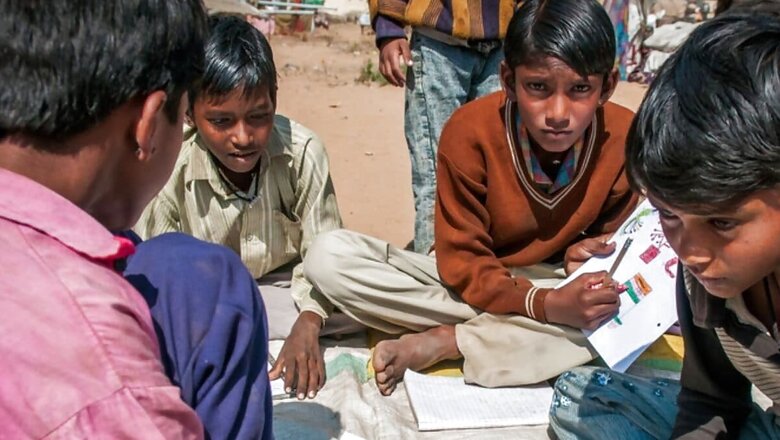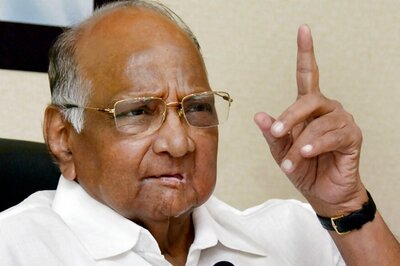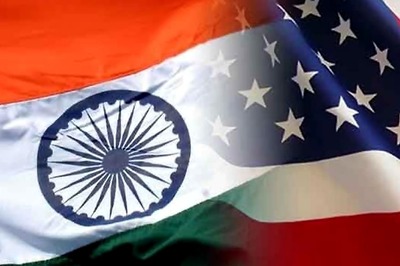
views
The education system is expected to undergo a significant transformation. The Ministry of Education has released the draft recommendations of the fifth revised version of the National Curriculum Framework (NCF), which has been developed under the New Education Policy 2020. The proposed changes in the draft NCF could bring about a massive shift in the way children learn in India, starting from class 1 up to class 12.
The draft NCF proposes several significant changes across the four stages of schooling, which include the foundational, preparatory, middle, and secondary stages. The proposed new schooling system in India consists of four stages: foundation stage for children aged 3 to 8, preparatory stage for grades 3 to 5 spanning over three years, middle stage for grades 6 to 8 over three years, and secondary stage for grades 9 to 12 spanning four years.
Also read| CBSE Boards 2024: Focus On MCQs, Weightage For Short And Long Answer Questions Reduced
The National Curriculum Framework draft has also recommended conducting board exams twice a year for grades 9 to 12. According to the draft, having board exams twice a year will give students sufficient time and opportunity to perform well. A test item bank can be created using appropriate software, making it possible to offer on-demand exams in the future, as envisioned in the New Education Policy 2020.
“Students can then appear for a board examination in courses they have completed and feel ready for. This process could be made possible through the creation of a comprehensive test item bank which can be used to create tests using suitable software,” stated the pre-draft. Further, it suggests explicit tests and examinations are completely inappropriate assessment tools for the foundational stage (preschool to class 2).
The curricular areas in the Indian education system are categorised into eight subjects, namely humanities (which includes languages), mathematics and computing, vocational education, physical education, arts, social science, science, and inter-disciplinary areas. The eight curricular areas will still be available in classes 11 and 12, and each area will offer various disciplines.
The draft NCF proposed a stronger emphasis on critical thinking and problem-solving skills for students in higher classes. Additionally, it suggests a cultural approach to address social issues such as bullying in schools. Under the pedagogy considerations, the draft recommends meeting challenges like bullying, isolation, and confusion with boundaries in and outside the classroom.
Read| Draft NCF on Maths Teaching: Need to Address Fear for Subject; Break Social Beliefs That Girls Aren’t Good at Maths
Furthermore, it is proposed that students in class 10 engage with environmental education as a separate subject, focusing on a holistic understanding of key concerns and issues related to environmental education by drawing upon their understanding across areas and the capacities developed in class 9.
The draft also suggested students must attend school for five and a half days a week with Saturdays being half-day. It also recommended that class periods must be 40 minutes for preparatory and middle school stages, and 50 minutes for students of class 9 and onwards.
While making these changes, the expert panel recognised that it might pressure secondary schools to offer a wide range of disciplines. Thus, to ensure that students have a reasonable choice, secondary schools must offer at least one curricular area from each of the following categories: Category 1: Humanities or Social Science or Science or Mathematics and Computing; Category 2: Inter-disciplinary Areas; Category 3: Arts or Sports or Vocational Education.
Students must also have a deeper understanding of the development of mathematical ideas over human history and the contributions of past and modern mathematicians from India and around the world. It also recommends learning about the cultural diversity of India by recognising various political ideologies, dialects, languages, traditional practices, religious ideas, trade, commerce, Indian Ayurveda, yoga, etc. Furthermore, it suggests learning about the Indian Constitution, and democracy, comparing it with other forms of government, and analysing the critical role of the media in shaping public opinion and the functioning of a democratic government.
These recommendations are only suggestions at this stage, as they have been put forth by the national steering committee led by ex-ISRO scientist K Kasturirangan, and the education minister has invited stakeholder feedback on the draft policy to ensure complete transparency.
Read all the Latest Education News here




















Comments
0 comment